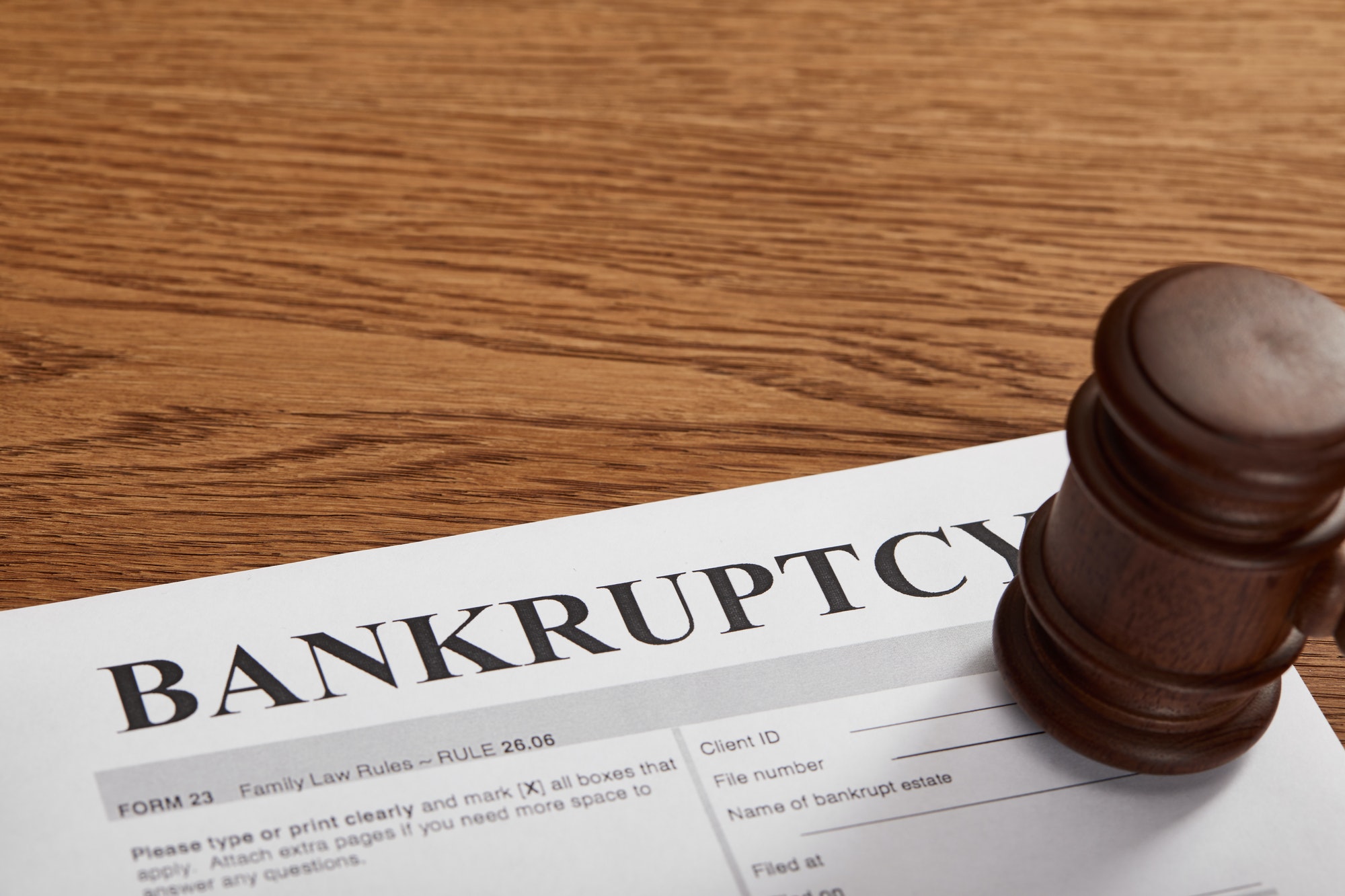Introduction
Are you amidst a Chapter 13 bankruptcy and wondering if there’s a possibility to refinance your mortgage? The road to financial stability during bankruptcy can seem challenging, but there might be a glimmer of hope in the form of mortgage refinancing. Despite the complexities, it’s feasible to explore refinancing options while under Chapter 13. And one of the keys to navigating this process effectively is using RateChecker to streamline your journey. Discover how mortgage refinance while in chapter 13 bankruptcy can offer financial relief. Learn about eligibility, challenges, and potential benefits. In this article we explore about refinance mortgage while in chapter 13 or we can say chapter 13 mortgage refinance in simple terms.
Understanding Chapter 13 Bankruptcy
Before diving into the intricacies of refinancing a mortgage during Chapter 13 bankruptcy, it’s crucial to understand the basics of this specific bankruptcy chapter. Chapter 7 bankruptcy, involves liquidation of the assets to pay creditors. Under Chapter 13, individuals retain their property and work out a repayment plan.
The Challenge of Refinancing in Chapter 13
- Limited Lender Options: Many traditional lenders are hesitant to work with individuals in Chapter 13 due to the perceived higher risk. Finding lenders willing to entertain refinancing options can be challenging, narrowing down the available choices.
- Higher Interest Rates: Even if lenders agree to refinance, individuals in Chapter 13 might face higher mortgage interest rates compared to those with good credit standing. The risk factor associated with bankruptcy often translates to less favorable terms, impacting the cost-effectiveness of the refinanced mortgage.
- Stricter Eligibility Criteria: Lenders impose stricter eligibility criteria for borrowers in Chapter 13 bankruptcy. They may require a consistent payment history within the bankruptcy plan, stable income, and sufficient equity in the property to consider refinancing.
- Bankruptcy Plan Approval: Refinancing during Chapter 13 requires court approval. Any changes to existing financial agreements, including a mortgage, necessitate approval from the bankruptcy trustee overseeing the case. This process can be time-consuming and uncertain.
- Additional Fees and Costs: Refinancing involves various fees such as closing costs, appraisal fees, and lender fees. While these are common in any refinancing process, individuals in Chapter 13 might face higher charges or additional fees associated with the bankruptcy status.
Factors to Consider Chapter 13 Bankruptcy
- Financial Goals and Objectives: Define your short-term and long-term financial goals. Determine what you aim to achieve through Chapter 13 bankruptcy, whether it’s debt repayment, asset protection, or restructuring.
- Eligibility and Suitability: Understand if you qualify for Chapter 13 bankruptcy based on your income, debts, and other financial aspects. Evaluate whether Chapter 13 aligns with your situation better than other bankruptcy options like Chapter 7.
- Court-Supervised Repayment Plan: Recognize that Chapter 13 involves a court-approved repayment plan to creditors, spanning three to five years. Consider whether you can commit to this structured plan and the associated financial obligations.
- Asset Protection: Chapter 13 allows you to retain assets while repaying debts. Assess whether you can protect essential assets, such as your home or car, through this bankruptcy chapter.
- Impact on Credit: Understand the impact of Chapter 13 on your credit score and credit history. While it negatively affects credit initially, it’s typically less severe and shorter-lived compared to Chapter 7 bankruptcy.
- Monthly Payment Obligations: Evaluate your ability to meet monthly payment obligations under the Chapter 13 plan. Ensure you have a stable income to sustain regular payments to the bankruptcy trustee.
The Role of RateChecker in Chapter 13 Mortgage Refinance
RateChecker can be a game-changer for individuals seeking to refinance their mortgages while navigating Chapter 13 bankruptcy. It’s a tool designed to assist borrowers in comparing various loan offers from different lenders, allowing them to find the most suitable rates and terms tailored to their financial situation.
How RateChecker can simplify the refinancing process during Chapter 13
- Comprehensive Comparison: RateChecker provides a comprehensive overview of available mortgage refinance rates despite being in Chapter 13 bankruptcy. It allows users to compare multiple loan options simultaneously, empowering them to make informed decisions based on their financial constraints and preferences.
- Access to Lenders Willing to Work with Chapter 13 Bankruptcy: Not all lenders are open to working with individuals undergoing bankruptcy. However, RateChecker collaborates with lenders who specialize in offering mortgage refinancing options to those in Chapter 13. This widens the pool of potential lenders and increases the chances of finding a suitable refinancing option.
- Customized Offers: RateChecker tailors offers based on individual financial scenarios, taking into account Chapter 13 bankruptcy constraints. This personalized approach assists borrowers in finding lenders willing to accommodate their specific circumstances, potentially leading to more favorable terms.
Steps to Refinance a Mortgage in Chapter 13 Using RateChecker
Navigating the refinancing process during Chapter 13 bankruptcy with RateChecker involves several steps:
- Gather Necessary Documentation: Collect all relevant financial documents, including your Chapter 13 bankruptcy plan, income statements, tax returns, and mortgage details. Having this information readily available streamlines the application process.
- Use RateChecker to Compare Offers: Enter your details into RateChecker and receive multiple refinancing offers tailored to your situation. Compare rates, terms, and lender requirements to identify the most viable options.
- Contact Potential Lenders: Reach out to the mortgage lenders offering favorable terms through RateChecker. Discuss your situation, provide necessary documentation, and inquire about their willingness to work with individuals in Chapter 13 bankruptcy.
- Complete the Application Process: Once you’ve chosen a suitable lender, complete the application process. Be prepared for additional scrutiny due to your bankruptcy status. Provide accurate information and promptly respond to any queries to expedite the process.
- Review and Finalize the Refinancing: Carefully review the terms and conditions of the refinancing offer before finalizing the deal. Ensure all terms align with your financial goals and that you understand the implications of the new loan.
Overcoming Refinancing Challenges
Despite these hurdles, several strategies can improve the chances of successfully refinancing a mortgage during Chapter 13:
- Patience and Persistence: Recognize that the process might take time. Be patient and persistent in exploring different lenders willing to work with bankruptcy cases.
- Improving Credit and Finances: Work on improving credit scores and financial stability during the Chapter 13 repayment period. Demonstrating responsible financial behavior can make you a more attractive borrower.
- Seek Professional Guidance: Consult with bankruptcy attorneys or financial advisors specializing in Chapter 13. Their expertise can also help navigate the complexities and provide insights into refinancing options.
- Explore Government Programs: Investigate government-backed programs designed to assist homeowners in financial distress, such as FHA or VA loans, which may have more lenient requirements for individuals in bankruptcy.
- Use RateChecker or Similar Tools: Utilize platforms like RateChecker to compare multiple loan offers tailored to Chapter 13 circumstances. These tools can help identify lenders more amenable to refinancing in bankruptcy scenarios.
The Benefits of Refinancing During Chapter 13 Bankruptcy
Refinancing a mortgage while in Chapter 13 can yield several advantages:
- Lower Monthly Payments: One of the significant mortgage advantages of refinancing during Chapter 13 is the potential to secure a lower interest rate. Lower rates can significantly reduce monthly payments, providing much-needed financial relief during bankruptcy.
- Extended Repayment Terms: Refinancing may allow borrowers to extend the loan term, spreading out payments over a longer period. While this might increase the overall interest paid, it can lower monthly obligations, making them more manageable during the bankruptcy repayment plan.
- Debt Consolidation Opportunities: Consolidating other debts into the refinanced mortgage is a possibility. By rolling high-interest debts, such as credit card balances or personal loans, into the mortgage, borrowers can simplify payments and potentially benefit from a lower overall interest rate.
- Access to Equity: If there’s accumulated equity in the property, refinancing can provide access to this equity, allowing individuals in Chapter 13 to tap into their home’s value to cover essential expenses or pay off high-interest debts.
- Improved Financial Stability: Successfully refinancing a mortgage during Chapter 13 can contribute to greater financial stability. Lower monthly payments and a more manageable repayment structure can alleviate financial stress and help individuals stay on track with their bankruptcy plan.
- Opportunity for a Fresh Start: Refinancing during Chapter 13 can signify a new beginning. By securing more favorable terms or restructuring the mortgage, individuals can work toward rebuilding their financial health and creditworthiness post-bankruptcy.
The Drawbacks of Refinancing During Chapter 13 Bankruptcy
- Court Approval Requirement: Refinancing during Chapter 13 requires court approval. Any changes to existing financial agreements, including a mortgage, need authorization from the bankruptcy court, which can prolong the process and is not guaranteed.
- Limited Lender Options and Higher Interest Rates: Individuals in Chapter 13 may have fewer lender options available to them, and those willing to work with bankruptcy cases may offer higher mortgage interest rates or less favorable terms due to perceived risk.
- Impact on Bankruptcy Plan: Changes in mortgage terms through refinancing might necessitate adjustments to the Chapter 13 repayment plan. Alterations could trigger a need for court review, potentially delaying the bankruptcy proceedings or complicating the plan.
- Additional Fees and Costs: Refinancing typically involves various fees such as closing the mortgage costs, appraisal fees, and lender charges. Individuals in Chapter 13 might face higher fees or encounter additional costs associated with their bankruptcy status.
- Potential Impact on Credit: Refinancing during bankruptcy could affect credit scores. Any changes to the mortgage or new credit inquiries may impact creditworthiness, potentially making it more challenging to obtain favorable terms on future loans.
- Stricter Eligibility Criteria: Lenders often impose stricter eligibility criteria on borrowers in Chapter 13 bankruptcy, requiring a stable payment history within the bankruptcy plan, consistent income, and sufficient equity in the property, which might be difficult to meet.
Conclusion
Navigating mortgage refinancing during Chapter 13 bankruptcy requires patience, perseverance, and the right tools. RateChecker serves as a valuable ally in this journey, offering a platform to compare multiple mortgage refinance offers and potentially find lenders willing to work with individuals in bankruptcy.
Remember, while the possibility exists to refinance a mortgage during Chapter 13, it’s crucial to weigh the pros and cons carefully, ensuring that any decision aligns with your mortgage long-term financial goals and the terms of your bankruptcy plan. With the right approach and tools like RateChecker, you can take steps toward financial stability even amidst the complexities of bankruptcy.
FAQs
1. Can I refinance my mortgage while in Chapter 13 bankruptcy?
- Yes, it’s possible to refinance your mortgage while in Chapter 13 bankruptcy, but it can be challenging. You’ll need court approval and must meet specific lender criteria to qualify for refinancing.
2. What are the benefits of refinancing during Chapter 13 bankruptcy?
- Refinancing during Chapter 13 can potentially lower monthly mortgage payments, extend repayment terms, consolidate debts, access home equity, and contribute to improved financial stability and a fresh financial start.
3. What challenges might I face when refinancing during Chapter 13 bankruptcy?
- Challenges include limited lender options, higher interest rates, stricter eligibility criteria, the need for court approval, additional fees and costs, potential impact on the bankruptcy plan, and extensive documentation requirements.
4. How to improve my chances of successfully refinancing during Chapter 13?
- You can also enhance your chances by improving your credit and financial stability, seeking guidance from bankruptcy attorneys or financial advisors, exploring government-backed programs, using platforms like RateChecker to compare loan offers, and being patient and persistent in the process.
5. Will refinancing affect my Chapter 13 bankruptcy plan?
- Any changes to your mortgage through refinancing must align with the terms of your Chapter 13 repayment plan and receive court approval. Alterations could potentially impact the plan, requiring adjustments and approval from the bankruptcy trustee.
Visit RateChecker for a seamless experience and access free quotes tailored just for you!


